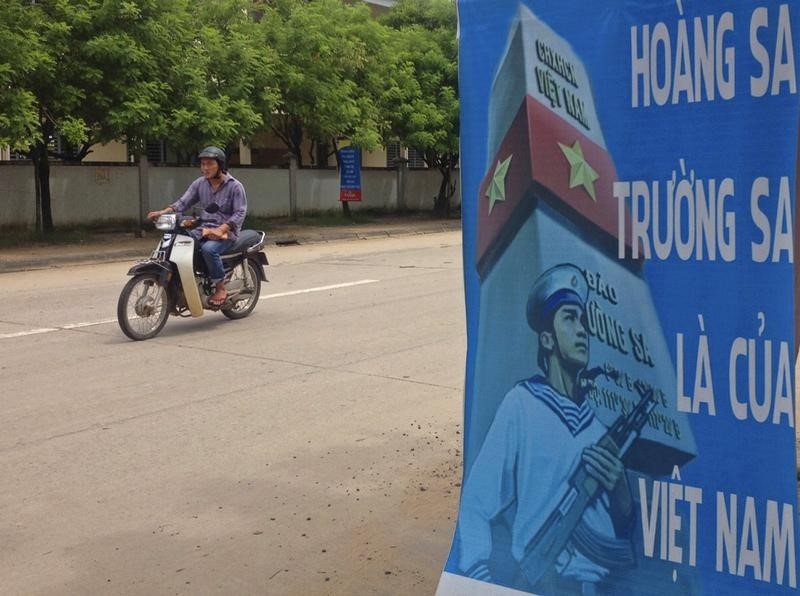MANILA (Reuters) - Vietnam has helped ensure peace in the South China Sea dispute with Beijing by following the Philippines in seeking U.N. arbitration, Manila said, despite the fact that Beijing has refused to take part.
Beijing claims almost the entire energy-rich South China Sea but Brunei, Malaysia, the Philippines, Vietnam and Taiwan also have claims. Only Brunei has not occupied and garrisoned territory in the potential flashpoint in the region.
Vietnam on Thursday submitted its position to a UN arbitration tribunal initiated by the Philippines over the festering dispute. China called on Vietnam to respect its sovereignty and has refused UN arbitration.
"The Vietnamese position is helpful in terms of promoting the rule of law and in finding peaceful and nonviolent solutions to the South China Sea claims based on international law," the Philippine Foreign Ministry said.
"...This promotes peace and stability in our region."
China, Vietnam and the Philippines are signatories to the U.N. Convention on the Law of the Sea, an international agreement that grants the right to explore and exploit resources within 200 nautical miles of a state's shore. Both Hanoi and Manila say Beijing is extending beyond the limit.
In May, China placed its largest mobile oil rig close to Vietnam's coast in the Paracel islands that prompted angry protests in Hanoi against Chinese business interests. At the same time, Beijing began reclamation in the Spratly islands and appeared to be building airstrips in the area.
Beijing has also seized control of Scarborough Shoal near the Philippines' main island of Luzon and chased civilian ships delivering supplies to Philippine-held Second Thomas Shoal in the Spratlys.
The Philippines and Vietnam appear to be ending decades of distrust. Last year, the two sides held a first-ever navy-to-navy talks and last month, Hanoi displayed its two most powerful missile-guided stealth frigates in Manila during a port call. The two states will hold the first strategic defence dialogue early next year.
"Vietnam's legal opinion puts political weight on the Philippine legal case," Professor Rommel Banlaoi, a security analyst, said on television.

"What Vietnam did was in fact supporting, reaffirming and even rallying behind the Philippine legal action and that's good for our national interest."
(Reporting by Manuel Mogato; Editing by Nick Macfie)